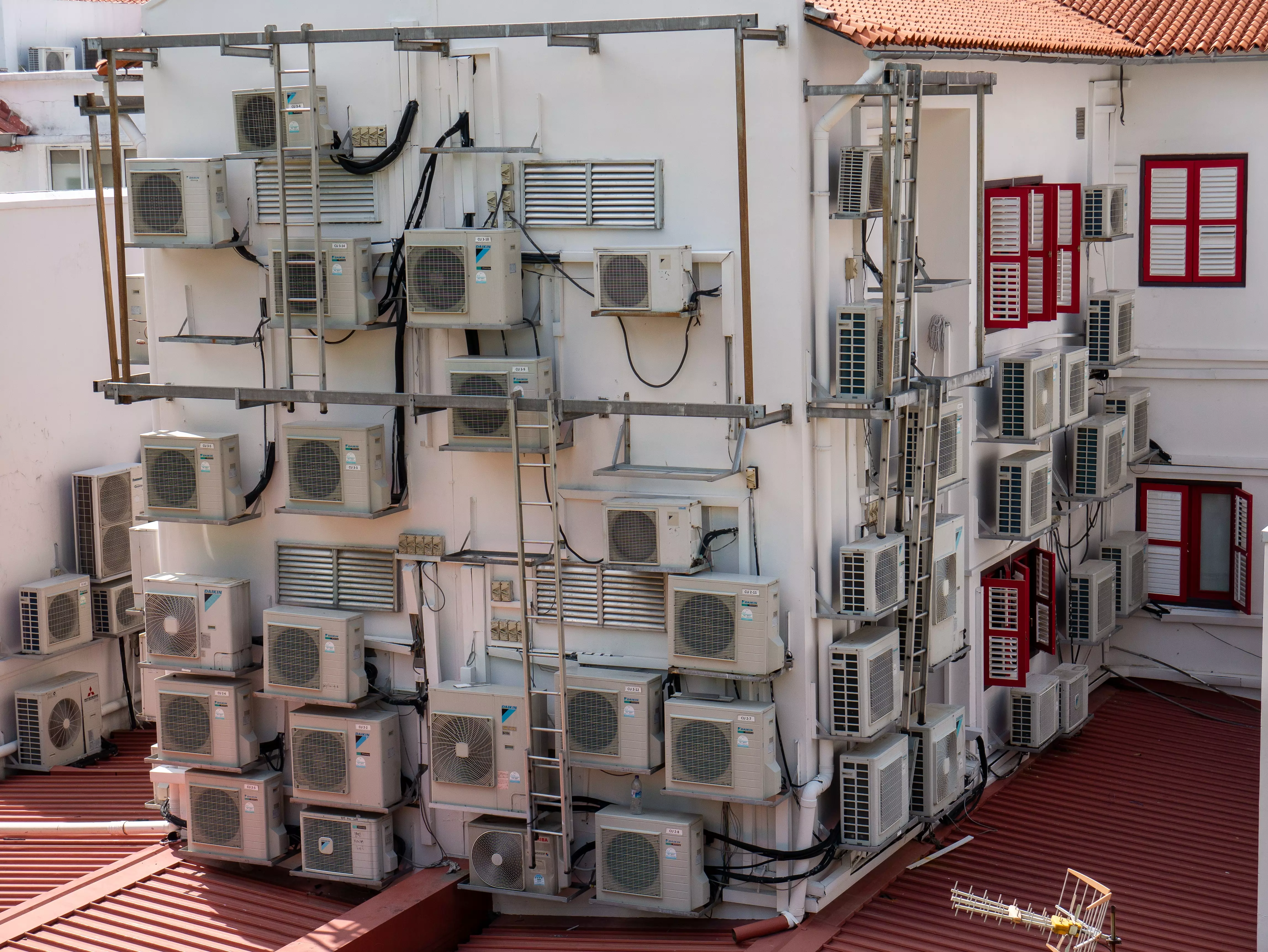Summary of our market study
The global market for heating and cooling networks is growing, with European countries such as Russia and China leading the way in network development. Nearly 6,000 district heating networks existed in Europe, representing 11-12% of energy needs.
In France, the main market players are ENGIE and EDF, who dominate through subsidiaries, as well as smaller, dynamic players such as Coriance and Idex.
Energy deliveries via networks are expected to rise between 2012 and 2028, and French households are increasingly interested in renewable energy heating networks.
The French government is focusing on improving these networks.
Heat and cold networks in France: a pillar of urban energy transition
Networks are price-competitive with other heating solutions, and contribute to the sustainable development of cities.
These systems enable a shift towards sustainable energy solutions, taking advantage of local energy resources that are difficult to harness using traditional methods.
Demand for district heating systems in the residential sector represents a significant proportion of energy deliveries, with homes accounting for over half and the tertiary sector for almost a third of total distribution.
Cooling networks are less widespread.
Heating and cooling networks are concentrated in the Paris region.
In addition, the French market is committed to the adoption of renewable and recovered energies, which today account for around 59% of the energy mix for heating networks.
Players in the French district heating and cooling market
- Engie with its subsidiaries Cofely and Climespace
- EDF and its subsidiary Dalkia, which manages a considerable number of networks across France
- Idex and Coriance, smaller, recognized companies
to understand this market
Detailed content of our market study
 Inforamtion
Inforamtion
- Number of pages : 35 pages
- Format : Digital and PDF versions
- Last update :
 Summary and extracts
Summary and extracts
1 Market overview
1.1 Definition and scope of the study
A heat network is a set of one or more power plants (heat) that distribute of heat in a city or housing estate through the use of underground pipes most often installed under roads. Then, some delivery stations deliver heat to buildings connected to the network (individuals, companies or communities).
It is therefore a centralised heat distribution system that makes it possible to exploit all local energy resources. The setting up of heating networks also gives the possibility of using on a large scale local energies that cannot be used by other methods of heating (industrial waste heat or heat from waste incineration, geothermal energy on aquifers, heat from cogeneration plants, etc.).
Less common, the cold networks have a similar operation, but in reverse They collect the heat in the buildings they serve and discharge it to a central cooling plant.
In Europe, northern and eastern countries tend to make greater use of these heating and cooling network systems, with penetration rates often exceeding 50% compared to 5% in France for heating networks For their part, cooling networks only represent a small part of the cooling market, whereas they are particularly developed in countries such as Japan or the Middle East
However, the French market has been growing for the last ten years . The growth in the number of networks and the quantity of energy delivered should be very significant in the coming decades if we believe the objectives set by the government, which sees it as a way to decarbonise the heating and cooling of buildings. In fact, in heating networks, the share of renewable and recovered energy used has increased from about 31% in 2009 to almost 59% in 2019.
ENGIE and EDF dominates the market through their subsidiaries, but smaller dynamic players are also present on the market - such as Coriance and Idex
All our studies are available online in PDF format
Take a look at an example of our research on another market!
 Choosing this study means :
Choosing this study means :
Access to more than 35 hours of work
Our studies are the result of over 35 hours of research and analysis. Using our studies allows you to devote more time and added value to your projects.
Benefit from 6 years' experience and over 1,500 industry reports already produced
Our expertise enables us to produce comprehensive studies in all sectors, including niche and emerging markets.
Our know-how and methodology enable us to produce reports that offer unique value for money.
Access to several thousand articles and paid-for data
Businesscoot has access to all the paid economic press as well as exclusive databases to carry out its market research (over 30,000 articles and private sources).
To enhance our research, our analysts also use web indicators (semrush, trends, etc.) to identify market trends and company strategies. (Consult our paying sources)
Guaranteed support after your purchase
A team dedicated to after-sales service, to guarantee you a high level of satisfaction. +44 238 097 0676
A digital format designed for our users
Not only do you have access to a PDF, but also to a digital version designed for our customers. This version gives you access to sources, data in Excel format and graphics. The content of the study can therefore be easily retrieved and adapted for your specific needs.
 Our offers :
Our offers :
the market for heating and cooling networks | France
- What are the figures on the size and growth of the market?
- What is driving the growth of the market and its evolution?
- What is the positioning of companies in the value chain?
- Data from several dozen databases
Pack 5 études (-25%) France
- 5 études au prix de 74 €HT par étude à choisir parmi nos 1200 titres sur le catalogue
- Conservez -25% sur les études supplémentaires achetées
- Choisissez le remboursement des crédits non consommés au terme des 12 mois (durée du pack)
Consultez notre catalogue d’études sectorielles


















